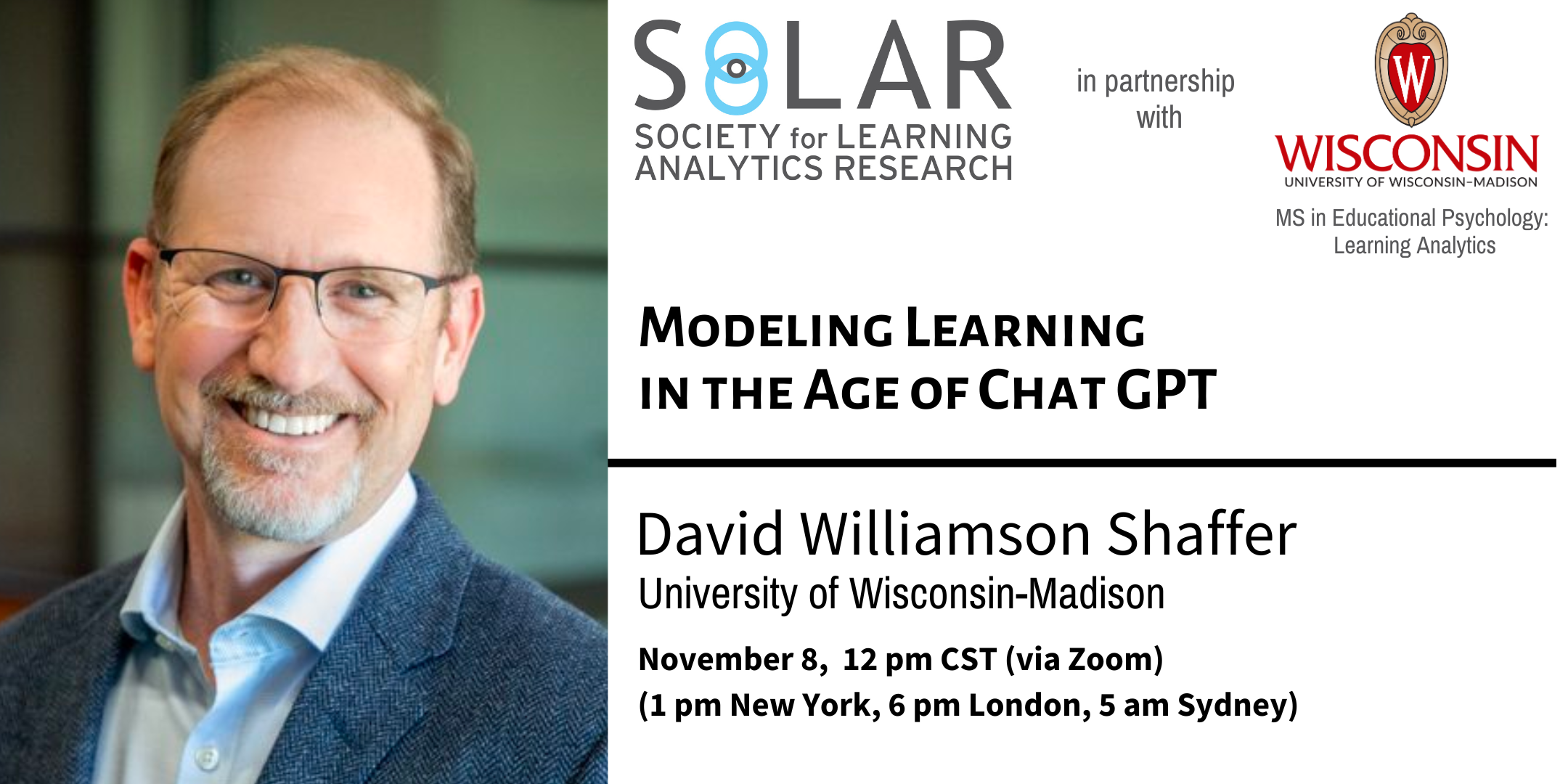Upcoming Webinar on November 8, 12pm CST. Register now!
November 2, 2023

It is our pleasure to invite you to our next SoLAR Webinar in partnership with the Master program in Educational Psychology - Learning Analytics at the University of Wisconsin-Madison "Modeling Learning in the Age of Chat GPT" with faculty director David William Shaffer. This talk looks at what ChatGPT and AI models are really doing, what that means for the future of education — and how we can model, study, and assess learning in the world that ChatGPT is helping us create.
Time and date: November 8, 12pm CST (1pm New York, 6pm London, 5am Sydney)
Location: Zoom (meeting URL provided in the registration email)
We are looking forward to seeing you at the webinar!
Abstract: ChatGPT is the new (and most well-known) AI tool that can whip up an essay, a poem, a bit of advertising copy—and a steady boil of hype and worry about what this will mean for education in the future. This talk looks at what ChatGPT and AI models are really doing, what that means for the future of education — and how we can model, study, and assess learning in the world that ChatGPT is helping us create. Join us for a Feature Webinar as faculty director David Williamson Shaffer discusses implications and potential use for harnessing ChatGPT.
Bio
David Williamson Shaffer is the Sears Bascom Professor of Learning Analytics and the Vilas Distinguished Achievement Professor of Learning Sciences at the University of Wisconsin-Madison and a Data Philosopher at the Wisconsin Center for Education Research. Before coming to the University of Wisconsin, Professor Shaffer taught grades 4-12 in the United States and abroad, including two years working with the US Peace Corps in Nepal. His M.S. and Ph.D. are from the Media Laboratory at the Massachusetts Institute of Technology. Professor Shaffer taught in the Technology and Education Program at the Harvard Graduate School of Education, and was a 2008-2009 European Union Marie Curie Fellow. His current focus is on merging statistical and qualitative methods to construct fair models of complex and collaborative human activity. Professor Shaffer has led the development of a suite of quantitative ethnographic tools that are being used by more than a thousand researchers in 20 countries as part of the annual International Conference on Quantitative Ethnography. He has authored more than 250 publications with over 100 co-authors, including How Computer Games Help Children Learn and Quantitative Ethnography.
